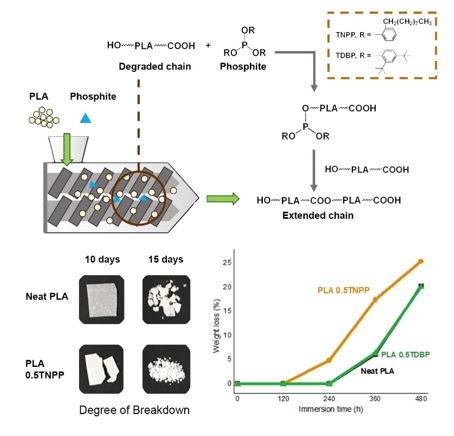Increasing concerns about limited fossil resources and impact of plastic waste on the environment have put the idea of sustainable and circular economy in the focus of academic research and industry. Poly(lactic acid) (PLA) as a biodegradable plastic derived from renewable biomass resources has attracted intensive attention. Even though PLA is considered as a completely degradable polymer, the degradation rate of PLA is still relatively low in actual environment. Also, PLA is susceptible to be severely degraded during melt processing, causing a drastic drop in mechanical performance. Therefore, it is critical to find an effective way to enhance the hydrolytic degradation rate while maintaining or even improving the thermal stability of PLA during melt processing. In this work, the method for achieving a concurrent improvement of melt processing stability and degradation efficiency of PLA is explored.
This research project was funded by the National Research Council of Thailand (NRCT) under the Research University Network Initiative. Associated SDG goals are Industry, innovation and infrastructure (9), and Responsible consumption and production (12).

Reference: Kalyanee Sirisinha* and Klanarong Samana, Improvement of melt stability and degradation efficiency of poly (lactic acid) by using phosphite, Journal of Applied Polymer Science 2021; 138: e49951.
